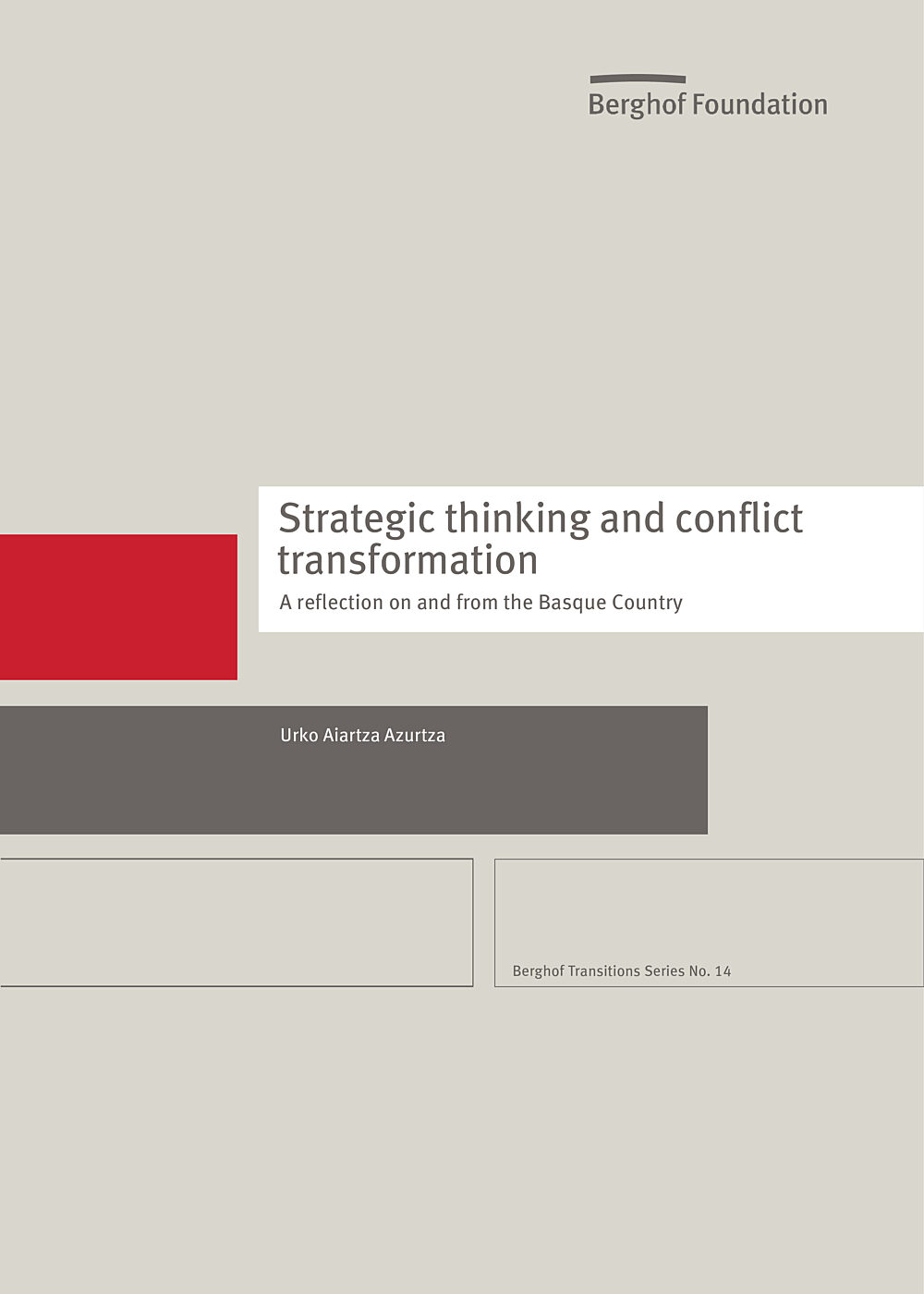FEATURE | 2 Apr 2019
Learning from ETA’s disarmament

The disarmament and dissolution of the Basque separatist group ETA is a unique example of a creative and unilateral transition to end armed conflict.
The disarmament and dissolution of the Basque separatist group Euskadi Ta Askatasuna, better known under its acronym ETA, is a unique example of a creative and unilateral transition to end armed conflict.
After the collapse of the negotiation process between the Spanish government and ETA in 2006, an internal debate within the Basque pro-independence movement led to a change of strategy. The new direction eventually resulted in the disarmament and dissolution of ETA in May 2018.
How did it come about and what lessons can be drawn from this case for other conflicts?

The new issue of the Berghof Foundation’s Transitions Series “Strategic thinking and conflict transformation: A reflection on and from the Basque Country” authored by Urko Aiartza Azurtza looks at these questions in detail. The study is based on in-depth interviews with actors who took part in this democratic transition process as well as on the direct involvement and experiences of the author himself.
The study highlights key moments of ETA’s transition, from the refusal of the Spanish government to negotiate to the inclusive consultation carried out by the pro-independence movement with its own members, base and constituency. Main lessons for other processes include:
- Peace processes can take place unilaterally and unconventionally
- Capable and committed leadership and a strong strategy are essential for an internal transformative process
- Creating momentum by moving forward unilaterally unblocks progress
- Civil society participation, as well as external engagement and support, legitimise and encourage peaceful transitions
- Resistance and liberation movements can learn from each other to transition into peace
- Parties need to be willing to negotiate for a peace process to come about.
This study is published within the framework of the Berghof Transitions Series. The author previously co-authored another Transitions Series report on the Basque peace process, covering the 1958-2007 period and the various attempts at negotiation between ETA and the Spanish Government (Aiartza and Zabalo 2009). This report updates it, while concentrating more specifically on internal strategic decision-making, and highlighting the innovative aspects of the current peace process. It can also be read together with our Transition Series 12, “ETA’s disarmament in the context of international DDR guidelines: Lessons learnt from an innovative Basque scenario”, written by the Basque Permanent Social Forum in 2017.
To read the report, click here. For more information on this study or the Berghof Transitions Series, please contact the series editor Dr Véronique Dudouet.
Media contact
You can reach the press team at:
+49 (0) 177 7052758
email hidden; JavaScript is required


